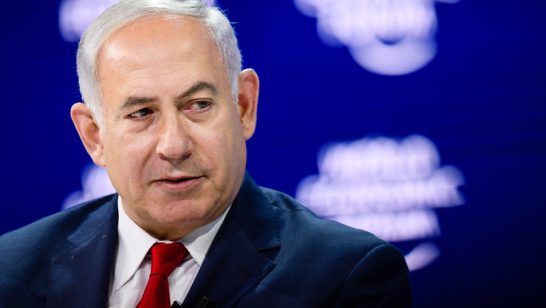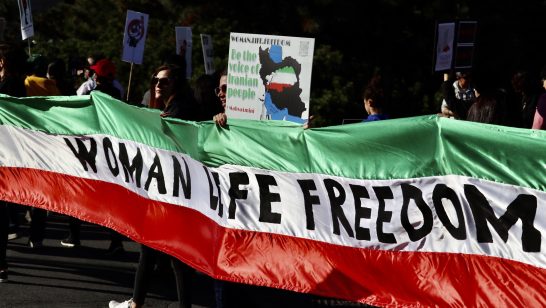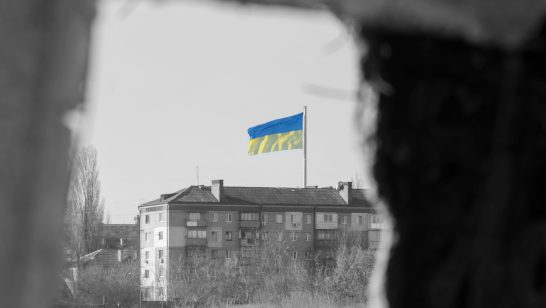
Since the start of Russia’s invasion of Ukraine in 2022, Tehran and Moscow have significantly bolstered their partnership. Iran has emerged as a key military ally for Russia, notably providing Moscow with a substantial number of kamikaze drones. These drones have played a pivotal role in the conflict. Additionally, both countries, facing economic sanctions, have intensified their collaboration to enhance trade relations and find innovative ways to bypass the imposed economic restrictions.
On June 23, 2023, a significant incident unfolded with the potential to impact Iran-Russia relations, as the Wagner group staged a rebellion against the Russian government. Yevgeny Prigozhin, the mercenary group’s leader, criticised high-ranking military officials, including Defense Minister Sergei Shoigu, for the high number of soldier casualties in Ukraine. They took control of Rostov-on-Don and the headquarters of the Southern Military District, moving toward Moscow. However, the rebellion was short-lived as after negotiations with Belarusian President Alexander Lukashenko, Prigozhin agreed to withdraw from Rostov-on-Don by June 24.
These dramatic turn of events in Russia received widespread attention in Iran. To understand Iran’s stance comprehensively, it is crucial to examine the reactions through three distinct lenses. Hamidreza Azizi
Unsurprisingly, these dramatic turn of events in Russia received widespread attention in Iran. To understand Iran’s stance comprehensively, it is crucial to examine the reactions through three distinct lenses: official governmental statements, the state or semi-state media commentary, and the viewpoints of independent experts and analysts.
Official reactions
The first official reaction came from Iran’s Foreign Ministry spokesman, Nasser Kanaani. Kanaani regarded the tumultuous events in Russia as an “internal issue,” asserting that “the Islamic Republic of Iran supports the rule of law in the Russian Federation.”
During a phone conversation with his Russian counterpart Sergei Lavrov, Iranian Foreign Minister Hossein Amir-Abdollahian echoed Kanaani’s sentiments. He reinforced Iran’s support for the “rule of law in the neighbouring and friendly country Russia.” Amir-Abdollahian classified the ongoing turbulence as an “internal issue” and expressed faith in Russia’s resilience to “transcend this challenging phase.”
Iranian Foreign Minister Hossein Amir-Abdollahian reinforced Iran’s support for the “rule of law in the neighbouring and friendly country Russia.” Hamidreza Azizi
Two days later, on June 26, Iranian President Ebrahim Raisi had a phone conversation with his Russian counterpart Vladimir Putin, during which he conveyed Iran’s full support for the measures taken by the Russian government against the Wagner Group.
State or semi-state media perspectives
A tweet from Nournews, an outlet close to Iran’s Supreme National Security Council (SNSC), referred to Putin’s uncompromising speech against Wagner from 24th June. While Putin didn’t specifically mention the West’s involvement in the Wagner rebellion, Nournews portrayed the incident as a “new Western plot” aimed at destabilising Russia and undermining its war effort in Ukraine.
Separately on its website, Nournews identified the Wagner rebellion as part of the West’s “cognitive war” against Russia. The outlet criticised Western states and media for exaggerating Russia’s internal situation.
In the same vein, Tasnim News Agency, an outlet affiliated with the Islamic Revolutionary Guard Corps (IRGC), suggested that the Wagner rebellion was a strategic “intelligence and security operation by NATO”, crafted to avenge Ukraine’s “failed counter-offensive” by shifting the battlefield into Russian territory.
Tasnim News Agency suggested that the Wagner rebellion was a strategic “intelligence and security operation by NATO” Hamidreza Azizi
Fars News Agency, another IRGC affiliate, pointed fingers at Iran’s reformist media outlets, accusing them of being Wagner’s “interest section” in Iran due to their comprehensive coverage of the events in Russia.
The hardline newspaper Kayhan shared a similar stance, stating, “The Wagner incident has shed light on the true nature of those claiming to be reformists and the Western-oriented currents, once again highlighting their ignorance of international relations and their strong dependence on the West.”
Javan newspaper, also connected to the IRGC, described the Wagner rebellion as a “suspicious betrayal” that was short-lived. However, unlike Fars and Tasnim, Javan noted that “despite NATO’s direct war with Russia in Ukraine, the West framed this event as an internal issue of Russia,” and showed restraint from intervening.
Independent views
The recent developments have elicited different perceptions of Iran’s relationship with Russia among various segments of the Iranian public and elite. Independent experts and observers have highlighted substantial disparities in how they perceive the evolving dynamics in Russia.
Ahmad Zeidabadi, a prominent reformist political activist, argues that Putin’s reliance on mercenaries has been problematic. He posits that the current situation could likely weaken the Russian army’s position in Ukraine, leading to a withdrawal from some occupied regions. Zeidabadi also suggests that Putin could use the “betrayal” by the Wagner Group to justify a potential peace agreement with Ukraine, thereby saving face domestically.
Hamid Aboutalebi, former President Hassan Rouhani’s political advisor, focuses on the implications of the recent developments on nuclear non-proliferation. He asserts, “The Wagner mercenaries’ coup challenges the notion that nuclear weapons ensure security and stability. When citizens are sidelined in politics, any incident can spark a national crisis.”
Hamid Aboutalebi, former President Hassan Rouhani’s political advisor asserts, “The Wagner mercenaries’ coup challenges the notion that nuclear weapons ensure security and stability Hamidreza Azizi
Fereydoun Majlesi, an ex-diplomat, perceives the Wagner incident as more of a humiliation for Moscow than an actual threat. In his view, “This rebellion seems more akin to a blackmail attempt launched by armed thugs with war experience in Ukraine.”
Naematollah Izadi, Iran’s last ambassador to the Soviet Union, considers that the Wagner insurgency against Putin could potentially mark the beginning of a turbulent series of events, although its ultimate outcome remains uncertain. Izadi believes ongoing disputes could contribute to ending the war in Ukraine, suggesting that any resultant Russian policy changes could create a favourable situation for Iran – without further elaboration.
Elaheh Koolaei, a former parliamentarian and a Russian studies professor at the University of Tehran, provides an in-depth analysis of the Wagner rebellion. She attributes the recent events to Russia’s failure to meet its war goals in Ukraine and its forces’ inadequate performance and equipment. She also warns that Putin’s standing might suffer from these developments and that Russia’s weakness increases the possibility of Moscow resorting to nuclear weapons. Koolaei advises Iranian policy-makers to heed these events and seek balance in their relationships with both the West and the East, instead of over-reliance on the latter.
Finally, Ali Motahari, another ex-parliamentarian, warns Russia-leaning individuals within the Islamic Republic about the Wagner Group incident, stating, “This serves as a warning… that they should not prioritise Russia’s interests over those of the Iranian people.” He stresses that Iran should maintain a distance from the Ukraine war, recognising Russia as an unreliable partner, and instead return to a policy of “neither East nor West.”
Conclusion
The Wagner rebellion in Russia has incited a spectrum of reactions in Iran, reflecting the country’s own internal complexities and divergent opinions on its relationship with Moscow. The Iranian government and state-associated media primarily expressed solidarity with the Russian government, attributing the rebellion to the plots of the West and NATO. In stark contrast, independent analysts and reformists seized the opportunity to voice criticisms against Moscow and Putin.
These differing perspectives illustrate a broader trend of polarisation in Iranian foreign policy that has been increasingly visible in recent years in a multitude of areas, from nuclear negotiations to geopolitical alliances. Hamidreza Azizi
These differing perspectives not only underline the dichotomy within Iran concerning its relations with Russia, but also illustrate a broader trend of polarisation in Iranian foreign policy that has been increasingly visible in recent years. This polarisation is evident in a multitude of areas, from nuclear negotiations to geopolitical alliances. Despite this, the Iranian government has largely disregarded independent critique and analysis. Hence, it is unlikely that the recent developments in Russia will significantly alter Tehran’s stance toward Moscow at the state level.
However, the wide range of responses to the Wagner rebellion underscores a significant undercurrent of unease toward the Islamic Republic’s approach to Russia within Iran’s expert community and, by implication, its wider populace. It highlights the existence of a nuanced, multi-faceted debate within Iranian society about the country’s foreign policy orientation, despite the government’s seeming resistance to reconsider its alliances. Consequently, while Iran’s official stance toward Russia might remain unchanged for the time being, the discourse surrounding these events signals a vibrancy in Iranian civil society and policy circles that should not be overlooked.
The opinions articulated above represent the views of the author(s) and do not necessarily reflect the position of the European Leadership Network or any of its members. The ELN’s aim is to encourage debates that will help develop Europe’s capacity to address the pressing foreign, defence, and security policy challenges of our time.
Image: Wikimedia commons, Mehr News Agency



